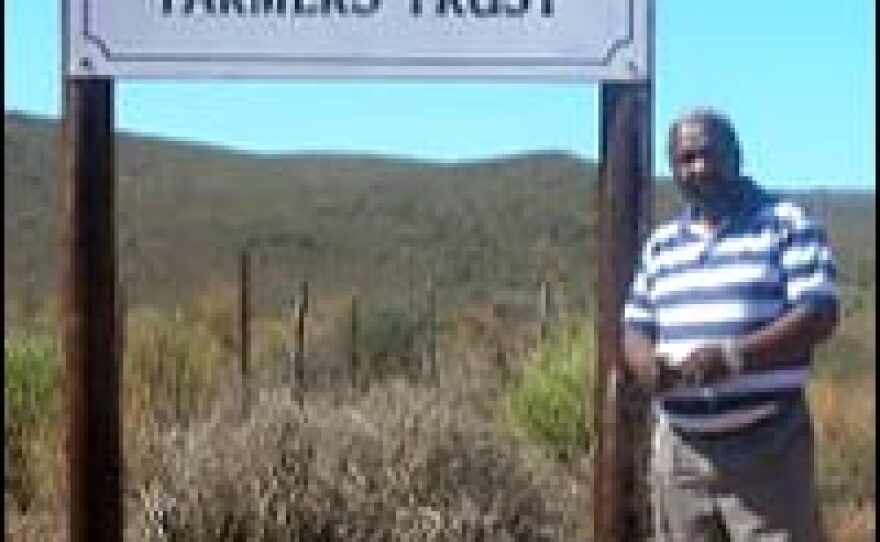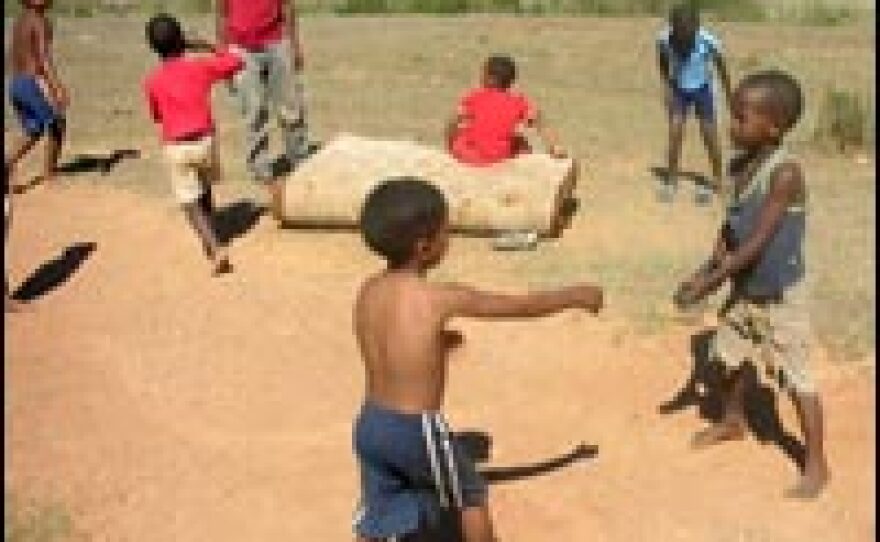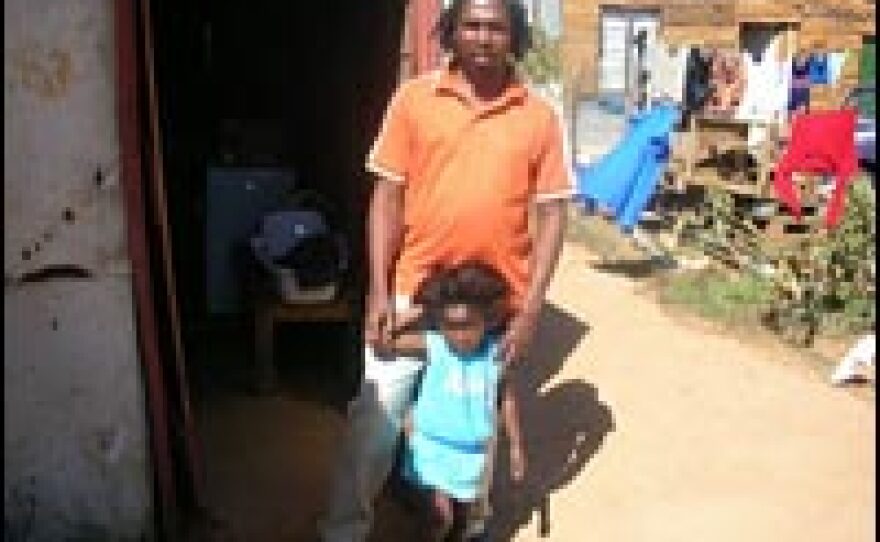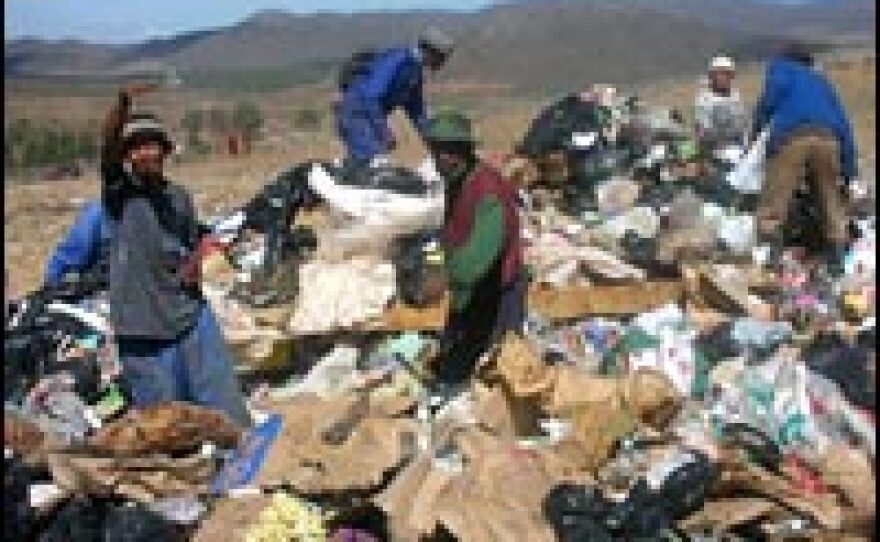



Some two-thirds of Africans live in rural areas, and most are without lifelines into the economy. Even in South Africa, which has the strongest economy on the continent, rural unemployment is about 70 percent.
Advocates say ending the cycle of poverty depends on putting farmland in the hands of blacks. About 96 percent of commercial arable land is still in the hands of South Africa's white farmers. But efforts to reform land ownership in places like the rural part of South Africa's Western Cape have been slow to get off the ground.
The landscape of the Western Cape is thickly populated with rows upon rows of lush green vineyards, producing wine that generates some $13 billion to the country. They are joined by miles of orchards of pear and peach trees and other fruits, as well as olives — all growing in rich, well-tended and irrigated soil.
But there is another landscape amid these riches — a bleak one you do not see from the open road.
The beeping sound of a garbage truck dumping its load in a landfill serves as the dinner bell for people like Katie Scholtz and her partner, George Richan. Sometimes an unfinished lunch discarded by a schoolchild serves as a meal for the couple, who live in the bush near the dump.
Richan also scavenges for broken radios, which he either repairs or recycles by selling the copper wires within. The money he makes from the tossed radios is used to buy food.
Dan Ncobe also lives off the windswept dump.
"I just can't turn away and commit some crime," he says. "So I get this free here and change it for the money. So I don't need to go and steal..."
More than a dozen men and women scavenge alongside Ncobe, searching through the putrid waste.
"Look at these people," he says. "They are all [living in] poverty. This is another side of the world people never notice."
Millions of Africans all over the continent are mired in this kind of extreme poverty, many living on less than a dollar a day. The intractable poverty often destroys their dignity along with their health.
The South African government aims to put about 30 percent of the country's agricultural land into black hands within 15 years. But the program has been painfully slow.
Moreover, where successful sales have taken place, critics complain that the government has failed to help black farmers, most of whom have neither the skills nor other resources enabling them to make it.
The government has acknowledged shortcomings in its land-reform program, and has vowed to take steps to speed it up.
Many argue that recovering the land is crucial to ending poverty and unemployment all over the continent, but most efforts have met with disastrous results, including in South Africa's neighbor, Zimbabwe. Until the Zimbabwean government drove white farmers away in often violent land seizures, the country was one of Africa's breadbaskets. Now, with both the farmers and the thousands of black farmworkers driven off the farms, Zimbabwe is now an African basket case.
Copyright 2022 NPR. To see more, visit https://www.npr.org. 9(MDAzMjM2NDYzMDEyMzc1Njk5NjAxNzY3OQ001))






